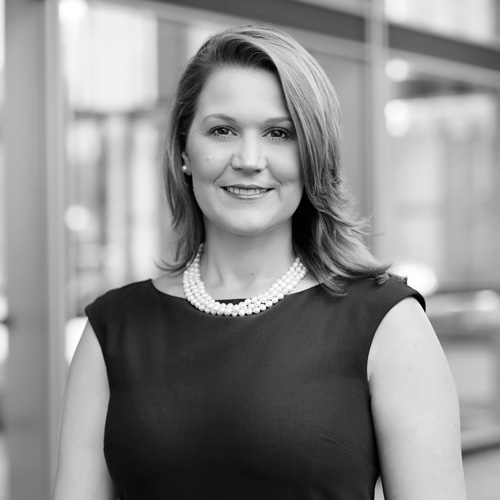
Michael Keane likes to stay on his toes. During his more than twenty-five years in human resources, he’s often found himself drawn to companies that he describes as challenged—whether that’s in terms of operations or a transition. “I put myself on that path to try different industries and experiences,” he says. “I made the choice to go into ambiguity and uncertainty, and that’s been a consistent theme for me, by and large, for the last twenty years.”
He’s not kidding. After kicking off his career at appliance giant Whirlpool, Keane uprooted his life in southwestern Michigan and moved to Columbus, Ohio, where he cut his teeth at Borden Foods before transitioning into retail. The following years found him climbing the ranks of companies such as Limited, Victoria’s Secret, and Tween Brands. Feeling ready for another big change, he switched both cities and industries to accept the role of chief human resources officer for P.F. Chang’s China Bistro, headquartered in Scottsdale, Arizona.
Like several of Keane’s previous employers, P.F. Chang’s is a company that is very much in transition. Of the restaurant chain’s top nine leaders, only one has worked there for more than two years. Although P.F. Chang’s is still successfully operating more than two hundred restaurants in forty states, Keane admits that the business has been, for a protracted period of time, in some decline. As always, though, he’s optimistic. “This management team has to change that,” he says. “The first step to moving in a different direction is to change the expectations.”
Clarifying expectations is just one aspect of P.F. Chang’s culture that Keane and the leadership team hope to cultivate. “Culture is what your leaders do,” he says.
“So, whatever you write, whatever you proclaim your culture to be, the reality of that is borne out by what your leaders actually do.” Cultivating a consistent workplace culture is not only one of Keane’s specialties as an HR professional, but it’s also a large part of his day-to-day. He says that up to 70 percent of his workload is dedicated to that endeavor.
“The best cultures in any organization are really clear about not only what the culture is, but how they’re supposed to behave within it,” he says. And while Keane says that P.F. Chang’s is still early in establishing that culture, he’s able to articulate it clearly.
Everything about the culture ties to the philosophy of servant leadership, a phrase culled from a 1970 essay by Robert K. Greenleaf that essentially values a
community-based approach rather than a pyramid-like, top-down structure. “The model here is centered around what we do to make it easier for our operators to do the business—period,” Keane says.
In this environment, Keane speaks of leaders who are focused on helping their teams be more effective through vehicles like getting better plans, not just for the operators and employees of the company’s restaurants but also for its executive staff. “There must be at least one thing that every person in the company, myself included, needs to get better at,” he says. “Not eight things you need to get better on, but the one or two things. We strive to create clarity on that. That’s’ a huge part of the support model we’re going for.”
According to Keane, servant leadership is made up of four clear culture components. High expectations is the first component, and Keane notes that the company has had to recast what those expectations are in the wake of its new leadership. The second is high accountability. “When you talk about a problem, start with yourself,” he says. “You start with what you didn’t do and what you should’ve done differently.”
High challenge is the third component. “Once we clear a hurdle, we need to find the next one because if we’re not getting better on our terms, one of our competitors is going to make us get better on their terms,” he says. “And that’s not acceptable.”
The key to P.F. Chang’s reinvigorated culture, however, rests in service leadership’s final culture component. In Keane’s opinion, support is what creates the most sustainability. This is where his role in HR is most focused. “It’s about building muscle,” Keane says. “It’s about what we are doing to build the muscle of our people in terms of their capacity to do more and be better, their capacity to be their best.”
Even more so than in retail, support is key to the restaurant industry. Keane says industry-wide turnover hovers around 75 percent, which has caused him to put much more thought into hourly workforce issues than he did in his previous positions. For a wok cook at P.F. Chang’s, the training program runs for ten weeks, which he says is much more intensive than most jobs you’d find in retail or even in most restaurants. That requires a real level of investment in the business, which is exactly what Keane and his team are trying to drive for their employees.
“What we’re asking the operators to do, from a cultural standpoint, is to act like owners,” he says. “You own it, so you pay maniacal attention to detail, and you have a high, high, high sense of accountability, first to your team members and then to your guests.”
Sure, that sounds intense, but Keane says that if the company supports people in their ability to be clear about what’s important to them, then those people will invest. This requires feedback along the way, as well as treating team members with respect. “That’s how you create a very virtuous cycle,” he says. “That’s what support means.”
Keane sees a bright future for P.F. Chang’s. The restaurant chain hopes to open up to another one hundred restaurants in the United States, as well as to expand its operations overseas, where leadership sees a lot of potential in terms of business and insight. “Our goal is basically P.F. Chang’s 2.0, if you will,” Keane says. “That demands change.” Like Keane has done his entire career, P.F. Chang’s will have to stay on its toes.

